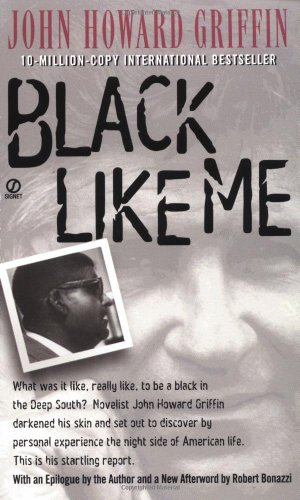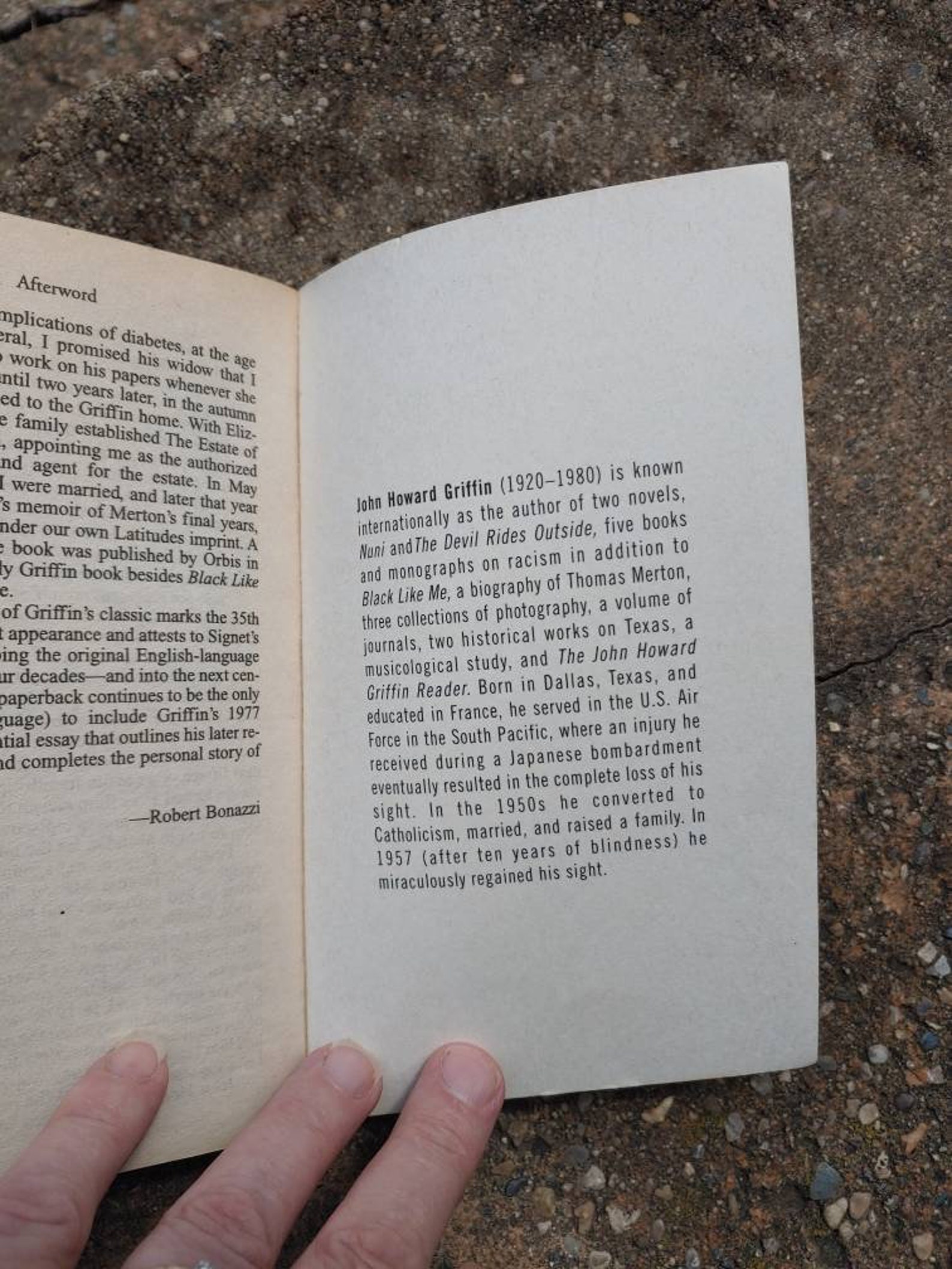

Griffin’s unquestionable sincerity, sensitivity to justice and humility in the face of the truth of the experience of Blacks in the South should be enough for us to hear his story with an open mind and reflect on the profound but partial truths that he discovered in his temporary Blackness. His hunger hounded him so much that he was insistent in carrying out this project, even to the point of death. He possessed some truths about justice, some facts about the furious violence enacted on Blacks in the South, and he was hungry for a fuller truth. He was painfully aware that he had not even an inkling of the truth regarding the daily life of Black people in the Deep South in 1959. However-and this is an important however-John Howard Griffin did this because he knew that he did not possess the truth. Griffin was not Black he took on Blackness in a dangerous way and tried to insert himself in Black life in the Deep South.

In this passage, the phrase “my blackness” must seem particularly jarring to the reader.

He saw me as something akin to an animal in that he felt no need to maintain his sense of human dignity, though he certainly would have denied this.īy this point, I would imagine readers and participants in the Catholic Book Club will have become deeply uncomfortable with Griffin, his project and the way he writes about it. The significance lay in the fact that my blackness and his concepts of what my blackness implied allowed him to expose himself in this manner. This again would have no significance and would be unworthy of note except for one thing: I have talked with such men many times as a white and they never show the glow of prurience he revealed. Of the driver, Griffin writes: It became apparent he was one of those young men who possesses an impressive store of facts, but no truths. More important, it reveals more about Griffin himself than the seemingly intelligent driver who was stuck in a morass of racist sexual fantasy and stereotype. Griffin’s account of the exchange is exceedingly insightful. One driver goaded Griffin continuously, even quoting Alfred Kinsey and asinine anthropological claims about black men and sex. The conversation had many registers, but it had the same content: sexual deviancy and fantasy.

On the road to Mobile, Griffin soon was aghast and then wearied by white male drivers who constantly peppered him with puerile questions about the sexual activity of Black men.


 0 kommentar(er)
0 kommentar(er)
